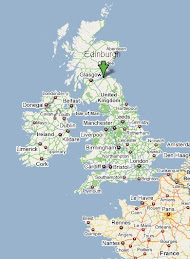Last week the Thai Ministry of Education held a meeting with the Burmese Learning Centres/schools in Mae Sot to inform them of a new legal regulation that is about to proceed through Thai parliamentary processes and is expected to become law by the end of 2009.
The regulation is called
Regulation of the Office of the Prime Minister
On Education Provision for Individuals with no Civil Registration
Or Thai Nationality
By Non-Governmental Organisations in Migrant Learning Centres
We have an unofficial translation of this document. Here is a summary of its content. If you want to see the main document, email sheila@lovehart.demon.co.uk
1. A National Committee comprising the Prime Minister’s Secretary and senior members of the depts of Education, Police, Royal Thai Army, Immigration Bureau, Special Branch, National Security Council, Dept of Employment, Bureau of the Budget etc will assume responsibility for the registration, standards, content of education and direction of the migrant learning centres in Thailand.
2. Local Area Committees will be established throughout Thailand to carry out the policies of the National Committee to ‘control the establishment, dissolution, merger and termination of migrant learning centres’
3. Migrant learning centres will only be allowed to exist if:
- they are administered by a Thai person with a university degree with enough assets/funding to provide for the migrant learning centre
- 20% of instructors have a university degree
- they teach Thai as main communication, Thai History, Thai culture and customs and the democratic government under the Thai constitutional monarchy.
4. Several clauses state how to dissolve a migrant learning centre and a wide range of reasons for doing this exist.
What does this mean for Burmese children in Thailand?
The regulation is called
Regulation of the Office of the Prime Minister
On Education Provision for Individuals with no Civil Registration
Or Thai Nationality
By Non-Governmental Organisations in Migrant Learning Centres
We have an unofficial translation of this document. Here is a summary of its content. If you want to see the main document, email sheila@lovehart.demon.co.uk
1. A National Committee comprising the Prime Minister’s Secretary and senior members of the depts of Education, Police, Royal Thai Army, Immigration Bureau, Special Branch, National Security Council, Dept of Employment, Bureau of the Budget etc will assume responsibility for the registration, standards, content of education and direction of the migrant learning centres in Thailand.
2. Local Area Committees will be established throughout Thailand to carry out the policies of the National Committee to ‘control the establishment, dissolution, merger and termination of migrant learning centres’
3. Migrant learning centres will only be allowed to exist if:
- they are administered by a Thai person with a university degree with enough assets/funding to provide for the migrant learning centre
- 20% of instructors have a university degree
- they teach Thai as main communication, Thai History, Thai culture and customs and the democratic government under the Thai constitutional monarchy.
4. Several clauses state how to dissolve a migrant learning centre and a wide range of reasons for doing this exist.
What does this mean for Burmese children in Thailand?
As we understand this, it seems to spell the end for most of Mae Sot’s 50 migrant learning centres and the end of education for most of the 10,000 children learning in these migrant learning centres. Only the wealthy and well connected will survive. What will become of the rest?
The Thai Government issued a policy in 2005, ‘Education for All’ which gives all children regardless of status a right to education (in a Thai school). However in practice it is too difficult for Burmese children to attend Thai schools because of costs of uniform, extra classes, language and also because of the prejudice and discrimination that exists towards the Burmese in Thailand.
Will most migrant centres have to revert to being covert, hidden and underground?


No comments:
Post a Comment